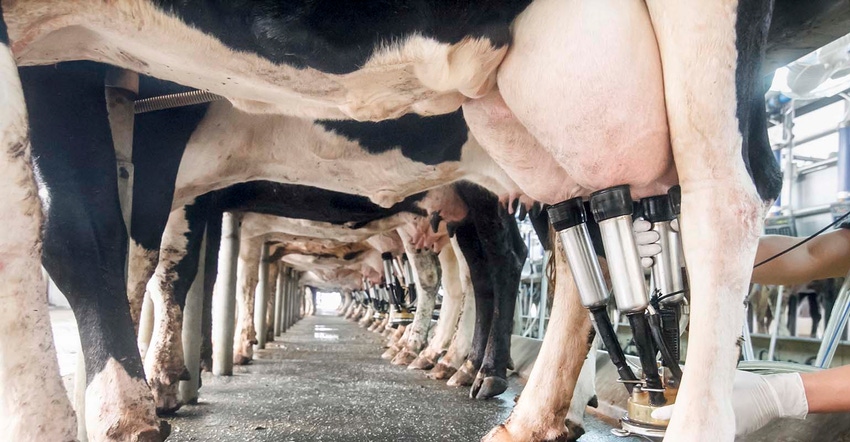
by Josh Wingrove, Sandrine Rastello and Jen Skerritt
Just before midnight one spring evening, Canada’s envoy in Washington got a call from Commerce Secretary Wilbur Ross.
Farmers in U.S. House Speaker Paul Ryan’s home state were up in arms over Canada’s rules and had gotten President Donald Trump’s ear. Ross was looking to David MacNaughton for help.
“He said, ‘the President’s in Wisconsin -- I’ve never heard him so upset,’” MacNaughton later recalled in a speech in Ottawa. According to MacNaughton’s account, Ross continued: “There are a bunch of dairy farmers that are going bankrupt and it’s all because of Canada. What are you going to do about it?”
Despite that bluster, negotiators hashing out a revamp of the North American Free Trade Agreement in Ottawa this week still haven’t received U.S. proposals on the most contentious issues, including dairy, which was left out of the current NAFTA but has been a lightning rod in all recent Canadian trade talks. It’s expected to end up on the table again, with the Canadian government pledging to dig in.
“We intend to defend supply management and the interests of Canadians in these negotiations,” Prime Minister Justin Trudeau said Monday at press conference in Toronto.
Presidential Threats
Agriculture is on the agenda Tuesday and Wednesday in the third round of talks between Canada, the U.S. and Mexico. The trio of ministers arrive to join talks Tuesday. When and where dairy comes up will be a key test of the link between Trump’s words and the actions of his negotiators. Emily Davis, a spokeswoman for U.S. Trade Representative Robert Lighthizer, declined to comment when asked if the U.S. will press for dairy reform in NAFTA talks.
“There’s less pressure on that than was expected,” according to Quebec Premier Philippe Couillard, whose province is home to the most dairy farms in Canada. That may be because the U.S. doesn’t want to open up its own system of subsidies, he said last week in an interview at Bloomberg’s headquarters in New York.
“When you start putting something on the table, you have to be sure that the end result is exactly what you wish for,” Couillard said, adding he doesn’t take Trump’s public threats as gospel since in his view they are “mainly designed for the internal U.S. political environment.”
Industry, too, is in a holding pattern pending specifics from U.S. negotiators. “We haven’t really heard what he wants from the Canadian market,” Pierre Lampron, head of the Dairy Farmers of Canada lobby group, told lawmakers in Ottawa last week during NAFTA hearings. The group anticipates the issue could come up in talks, but says the best scenario is for daily to be kept out of NAFTA. “Our defensive position is not to give him more access to markets.”
Perennial Target
Trump’s Wisconsin complaint didn’t actually have much to do with NAFTA. The U.S., facing an oversupply of milk, was complaining about Canadian restrictions on ultra-filtered milk, a concentrated ingredient used to boost protein content in cheese and yogurt. “Canada has made business for our dairy farmers in Wisconsin and other border states very difficult. We will not stand for this. Watch!” the president said on Twitter in April.
The sector shouldn’t even be on the table, according to David Froelich, director of the Teamsters Canada dairy division, which represents about 5,000 workers in the industry. “The dairy supply chain wasn’t part of the original NAFTA and it doesn’t make sense to include it now,” Froelich said by phone. “Should it be an issue, it’s going to be opposed.”
Dairy is nonetheless a perennial target in trade talks and was among the final issues to be nailed down in the Trans Pacific Partnership, from which Trump withdrew the U.S. after taking office. Trudeau’s predecessor announced C$4.3 billion ($3.5 billion) in funding for Canadian farmers to cushion the impact of concessions made in the deal to partially open the country’s dairy market.
With Canada’s negotiating team waiting to see what the U.S. wants on dairy, MacNaughton -- recounting his conversation with Ross -- isn’t taking anything for granted. “The best laid plans sometimes go awry,” the ambassador said.
To contact the reporters on this story: Josh Wingrove in Ottawa at [email protected]; Sandrine Rastello in Montreal at [email protected]; Jen Skerritt in Winnipeg at [email protected]
To contact the editors responsible for this story: Theophilos Argitis at [email protected]
Stephen Wicary, Kevin Orland, Sarah McGregor
© 2017 Bloomberg L.P
About the Author(s)
You May Also Like




